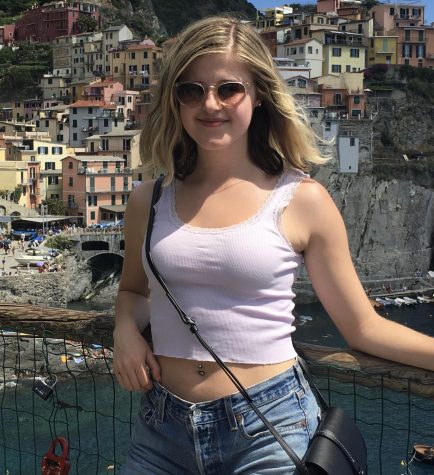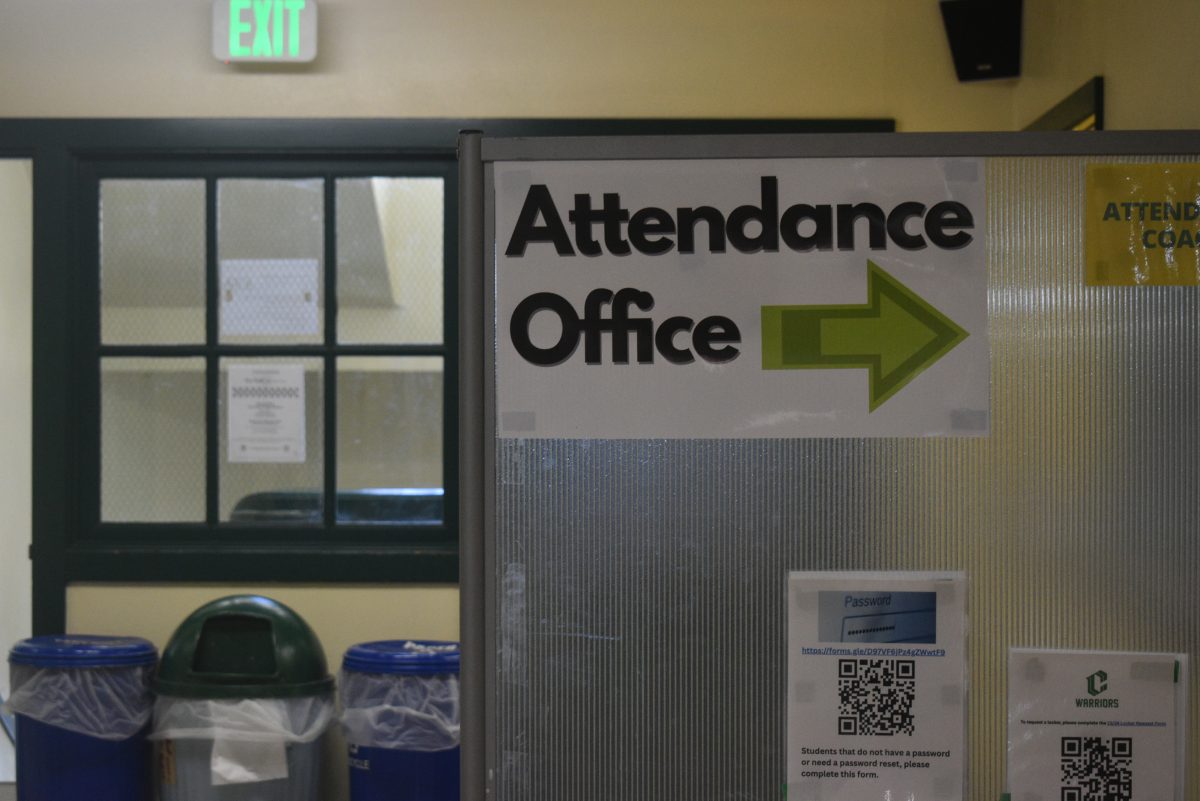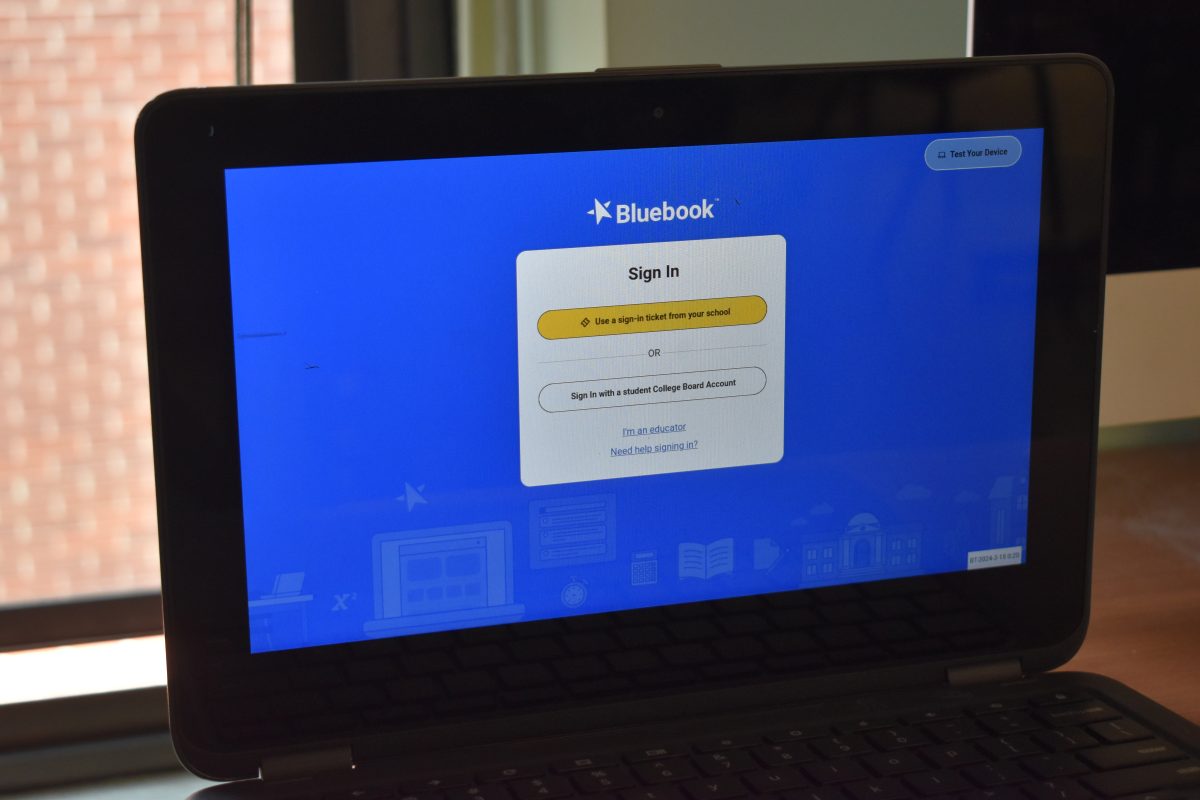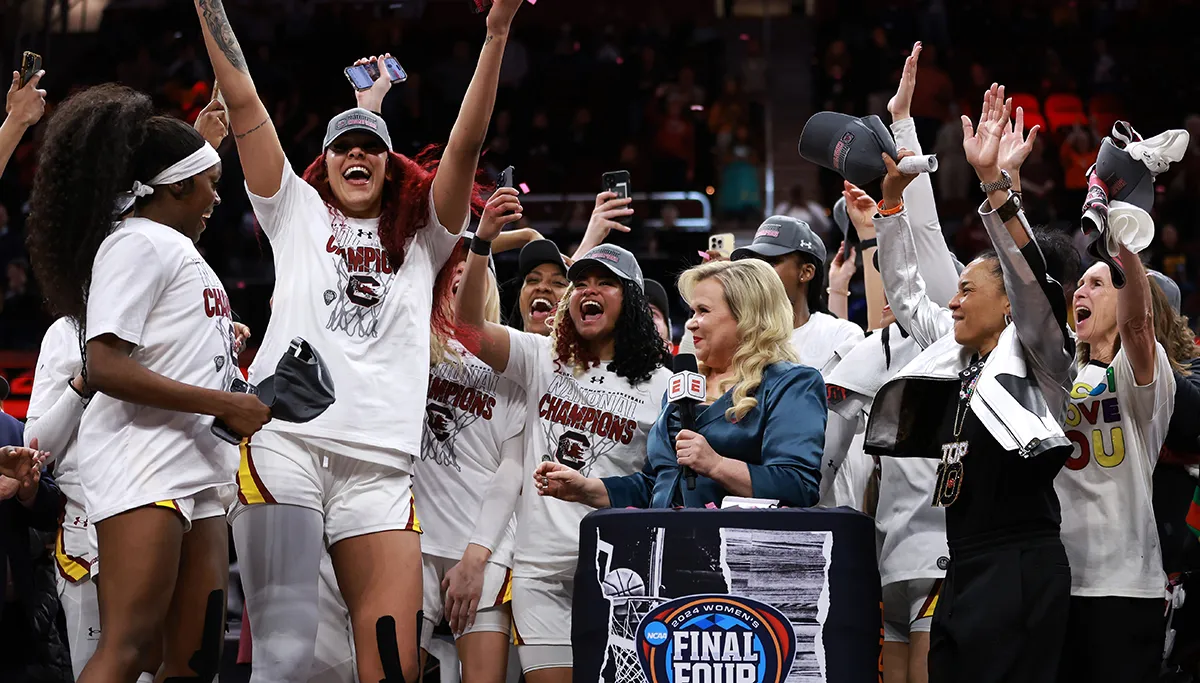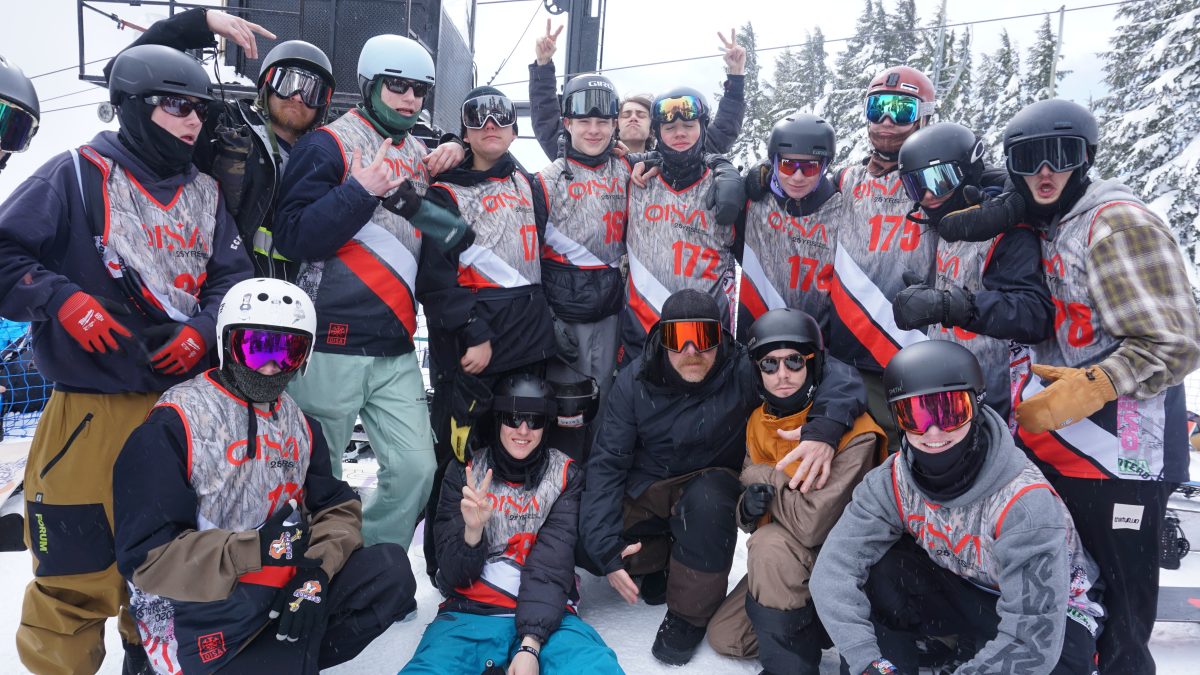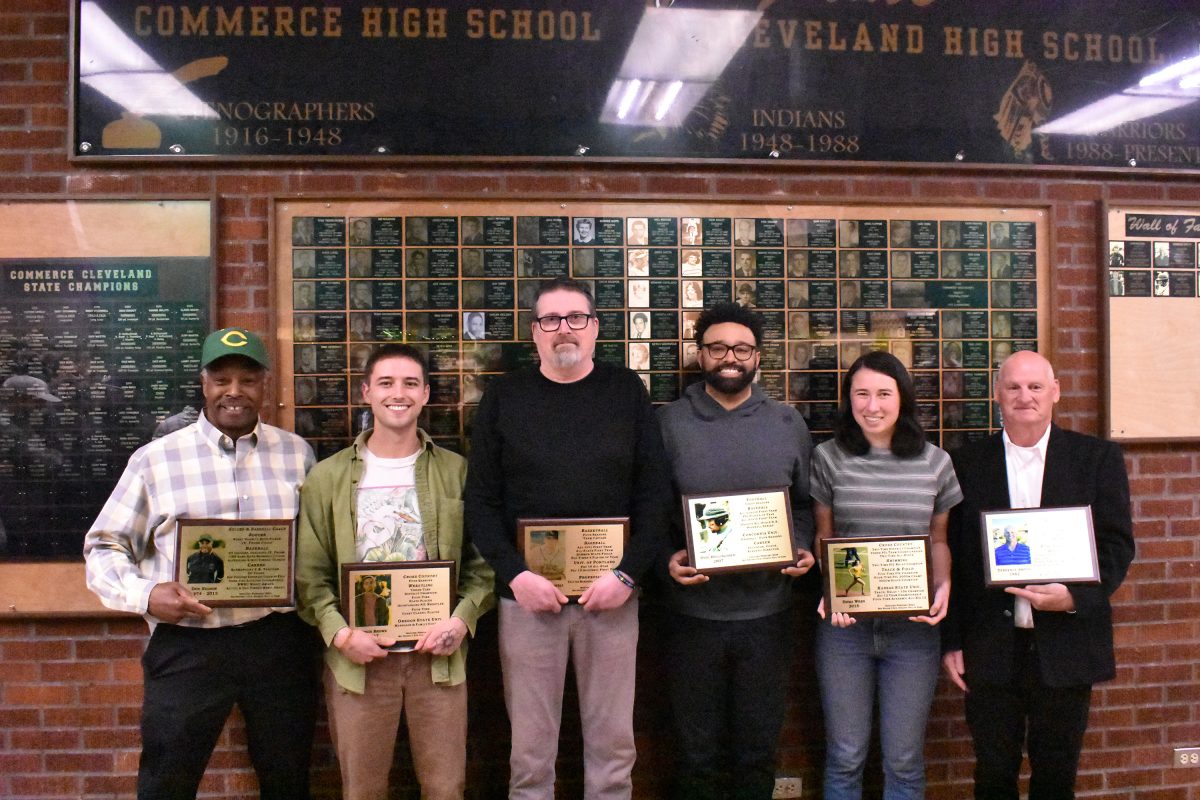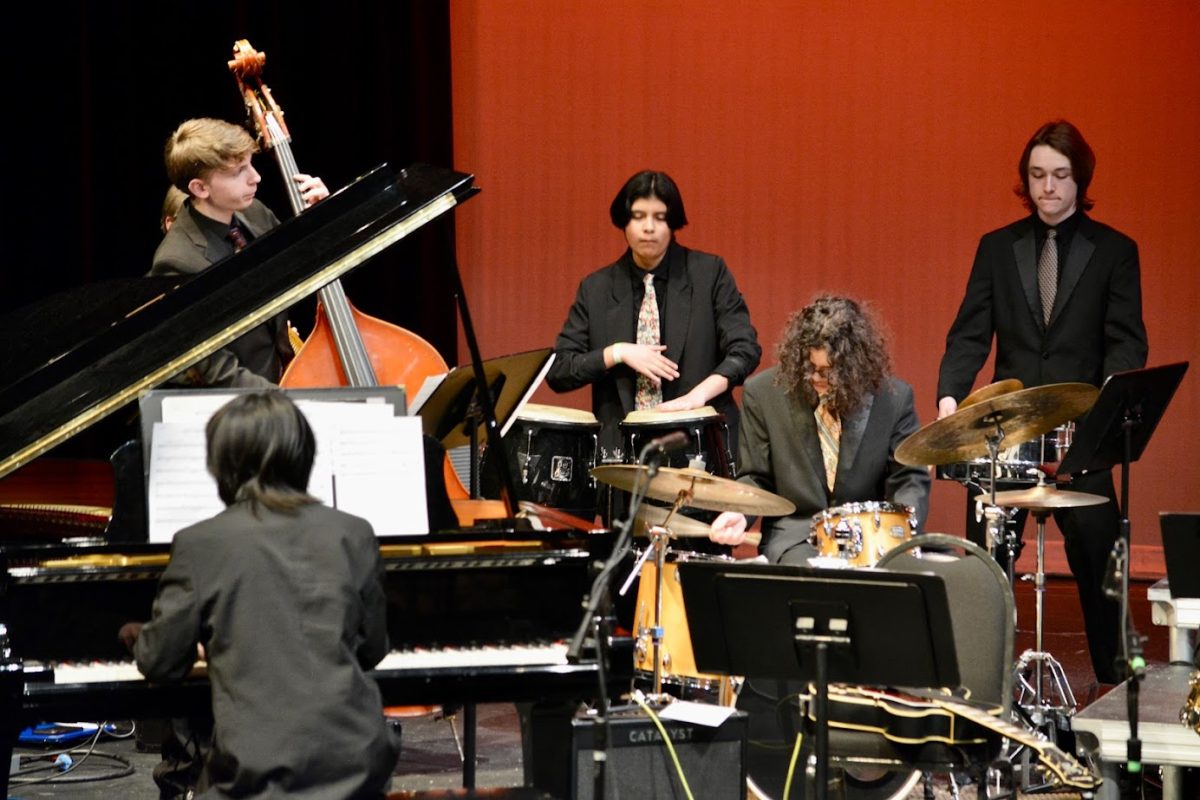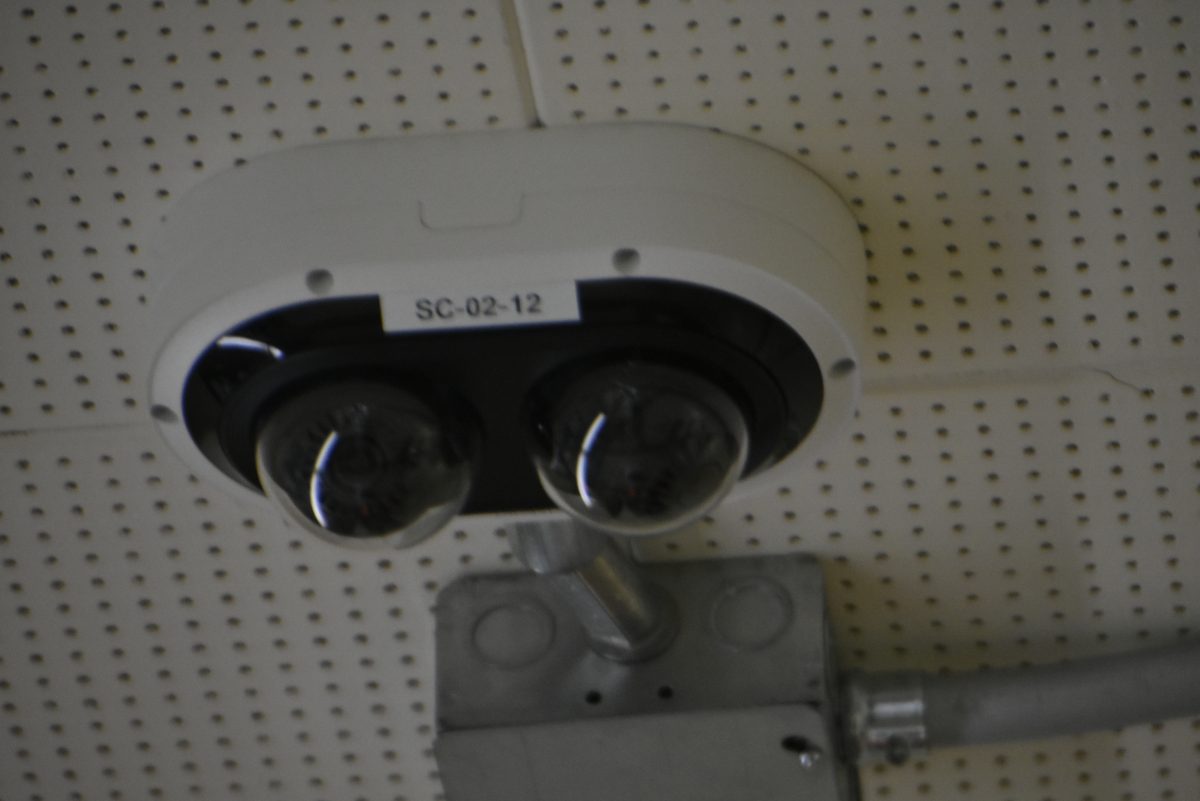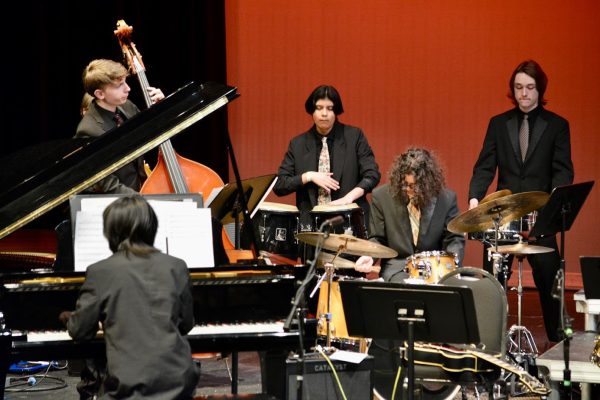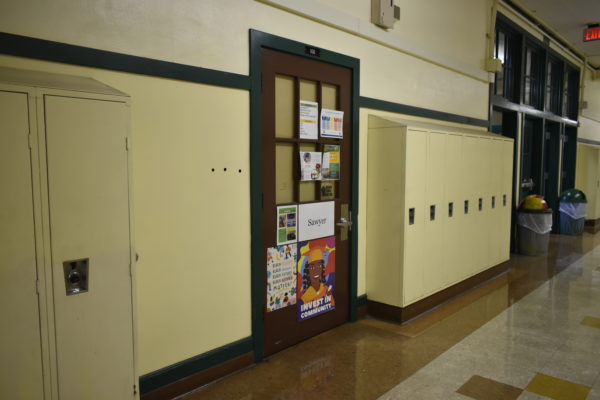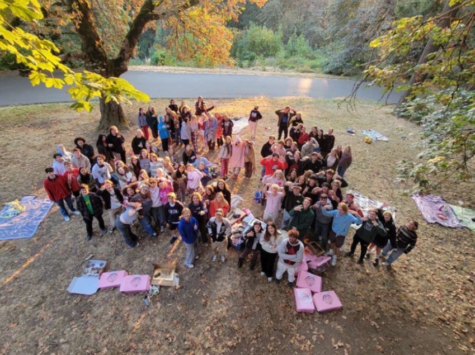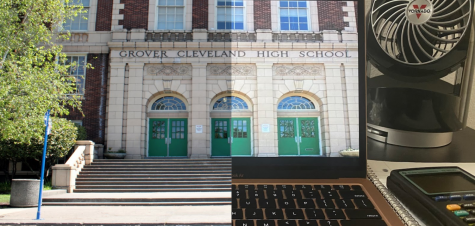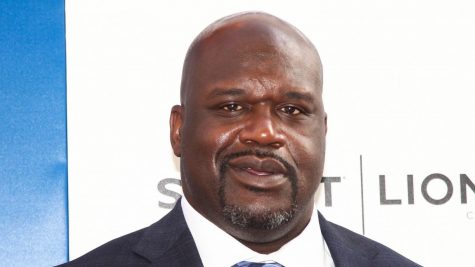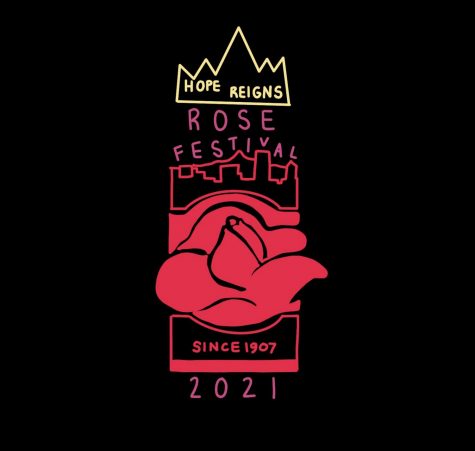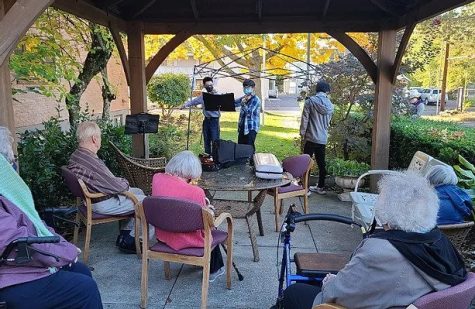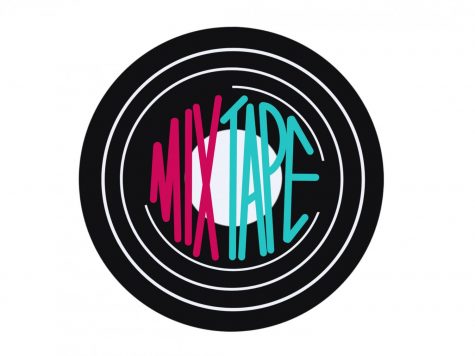Month in Music: Winter Issue
January 15, 2019
NOT ALL HEROES WEAR CAPES – Metro Boomin
After a brief break from the spotlight, St. Louis-born and Atlanta-based rap producer Metro Boomin returns with an album that builds on his established portfolio of dark and ominous beats. “Not All Heroes Wear Capes” features a multitude of guest appearances from artists that Metro has worked with extensively in the past: think Gucci Mane, Travis Scott, Drake, and Offset.
But there is perhaps no artist that Metro’s sound works more flawlessly with than 21 Savage. Known for delivering chilling threats in an alarmingly monotone voice, 21 is extremely adept at rapping about two main topics: his nightmarish upbringing in the streets of Atlanta, and how other rappers are broke, lame, and not him. The two songs on the album that he is the sole artist on are arguably the two best tracks.
“Don’t Come Out the House”, 21’s first solo song, makes a strong case for the revival of whisper-rap. After a terrifying first verse that ends with a 21 whispering “All these bodies I can’t sleep at night,” he switches back into his normal tone and moves to more general disses. It is evident that 21 isn’t just mad at his enemies, he’s willing to take shots at just about anyone. “Levi jeans, low self esteem, he on BlackPeopleMeet,” he says mockingly, casting a wide net to insult Average Joes everywhere. “10 Freaky Girls”, his second solo song, again showcases the duality of 21 as he alternates between threats and braggadocious one-liners. The course is infectious, relying on enunciation of the final word in each line for dramatic effect. “Hanging off my earlobes is a rock / hanging off my waistline is a glock,” he raps.“The body in the casket was an opp / I don’t throw no bottles I throw shots.”
“Dreamcatcher,” featuring Swae Lee (half of the duo Rae Sremmurd of “Black Beatles” fame) and Travis Scott is another highlight. Swae’s voice and the slow and smooth beat veer dangerously close to sickly-sweet overkill, but Travis’ verse provides enough contrast to balance it all out. This is a perfect example of Metro bringing out the best in the artists he works with – it’s one of my favorite vocals ever from Swae. The song is propped up by a simple refrain in which Swae ascends into falsetto: “Dancing, in the strobe lights / put your eyes on me / I don’t need to know your sign / do you see something you like?” For Travis’ part, he introduces a thoughtful double entendre in the lines “I can’t take your call I need FaceTime / rode the Metro took the bassline.” This works in reference to the public transit system as well as Metro Boomin. Travis is riding Metro’s beat, which includes the bassline, a low-pitched keyboard sound.
A personal favorite beat is “Space Cadet”, where Metro plays sonic matchmaker to Gunna’s otherworldly subject material, incorporating samples from NASA missions. The result is a beat that catapults the listener into space, floating off as the song progresses. No offense to Gunna, but the lyrics are hardly relevant on this one – the instrumental takes over and puts the listener in a trance.
Metro stumbles only slightly when deviating substantially from his signature sound. “Only You”, which features WizKid, Offset, and J Balvin, incorporates reggae influences that ultimately feel forced and bit stuffy. The artists sound constrained to the beat, and there is a glaring absence of musical build-up, one of the defining traits of a Metro production.
Overall, Metro’s return feels curated and concise. It is a focused and cohesive listening experience, because all of the content is grounded in his production. The beats are layered, and there is sophistication to his signature trap sound. Even the few minor missteps show growth and a willingness to experiment. On this album, Metro proves that he has so much more to contribute to the music world, and that his talent elevates not only the artists he works with, but the entire genre. He doesn’t need any words to make his presence felt.
FM – Vince Staples
On “FM”, rapper Vince Staples creates the radio broadcast of his dreams set in his hometown of Long Beach, California. It’s his third album, and he keeps it short at only 11 tracks (of which he only actually raps on eight). The album finds Staples going back to basics, and is a departure from the more experimental content on his last album, “Big Fish Theory.”
Much like broadcasts are occasionally interrupted with breaking news, Staples interrupts the fantasy California world he portrays with retellings of summertime violence. The album cover, drawn in almost amateur looking colored pencil, is telling of the subject material; it depicts beachgoers relaxing while a giant pink “FM” splashes down into the water and Los Angeles Police Department helicopters hover overhead.
On the first track, “Feels Like Summer”, the first words Staples raps are “Summertime in the LB wild / We gon’ party ‘til the sun or the guns come out.” Initially I was thinking of this album as his commentary on the dark side of summer, which made me wonder why it wasn’t released in the summer. But I think his point is that where he is from, it’s like this all year round. Plus, California doesn’t really cool down or have distinct seasons, which means they never really get a break from the hot weather-violence phenomenon. Staples portrays himself as simply trying to survive in this chaotic environment, rapping, “Try finessing my way into heaven / Might hit that gate might fall from grace.” But the song isn’t all gritty and violent- Ty Dolla Sign jumps in with a catchy and radio friendly hook.
Similar to Staples’ hometown not being able to catch its breath, “FM” packs so much into the 22-minute run time that it doesn’t give the listener a chance to catch their breath either. Features abound, from E-40 to Kehlani to Tyga to Earl Sweatshirt. That’s not to say the album is rushed though, as Staples builds in breaks with two different 30 second interludes. Skits and commentary by a local Long Beach DJ and others make for flawless transitions, meaning the vibe is never broken and the listener genuinely forgets that they aren’t listening to the radio.
One of the most personal and raw moments on the album comes on the final song “Tweakin’”, which features Kehlani on the chorus. “We just lost somebody else this weekend,” she sings. “Think that I am jumping off the deep end / Nothing out of something now it’s leaving / Tryna find my peace of mind it’s fleeting.” Staples reminisces on all of the friends he has lost to gun violence, and how he regrets not being present in his hometown for all of their funerals. “But when Johnny died all I had was shows booked / Down to burn in hell, I don’t care how my soul look,” he raps.
This is the kind of music you would hear playing out of someone’s car on a hot summer day, but only if that person was willing to ignore the lyrics to enjoy the vibe. Staples sets up that trap for us, but begs us not to fall into it.
Bottle It In – Kurt Vile
A summation of my commentary on this album? Weird, but definitely worth checking out. “Bottle It In” is Kurt Vile’s first solo album since 2015, and was recorded in different spots across the U.S. as he toured with Courtney Barnett (an extremely talented songwriter and musician in her own right) performing their 2017 joint album “Lotta Sea Lice.”
Vile deals in stream-of-consciousness lyrics and extended guitar breaks, and is known for a style he dubs “slacker rock.” The here, there, and everywhere way that the album was recorded is characteristic of him and mirrors the jumbled content of the album. Often, Vile descends into his own head during the course of a song, sometimes bringing the listener with him, but sometimes letting them drift, not really caring if they are still listening or not. It’s a self-absorbed strategy, but Vile knowingly sacrifices attention and accessibility for authenticity.
Nowhere is this notion more clear than on “Bassackwards,” a 10 minute ascent into spaced-out guitar-jamming heaven. After a few repetitions of a chorus reminiscent of the musings of a confused child (“I was on the beach but I was thinking about the bay / Got to the bay but by then I was far away / I was on the ground but looking straight into the sun / But the sun went down and I couldn’t find another one”) Vile stops talking altogether and lets the guitar run for roughly four more minutes.
A couple of more approachable songs include “Rollin With the Flow” and “One Trick Ponies.” On “Rollin With the Flow,” Vile takes on the tone of an optimistic cowboy backed by a beat that could easily accompany a country song. He doesn’t let himself drift, and the song is uncharacteristically concise. The content includes Vile remarking on current position in life, and contrasting that position with the positions of his peers. “All guys my age are raising kids /
I’m raisin’ hell just like I did,” he croons. “One Trick Ponies” expresses love and gratitude for family and friends, despite whatever shortcomings they bring to the table or the oddness of your relationships with them. The thesis comes in the third to last verse, where Vile sings, “Loved you all a long, long while / And I’d give my left, nevermind, for one big synchronized smile /Some are one trick ponies but so am I / Round ’em up into a mixed bag bundle of love now.”
To conclude, Vile is a puzzling yet undeniably distinct and talented artist. On “Bassackwards”, he returns from one of his driftings by saying, “But out of sorts but I snapped back, baby / Just in time to jot it down and come around”. As long as he returns to the material world long enough to jot a few things down, listeners are sure to get some interesting content.



